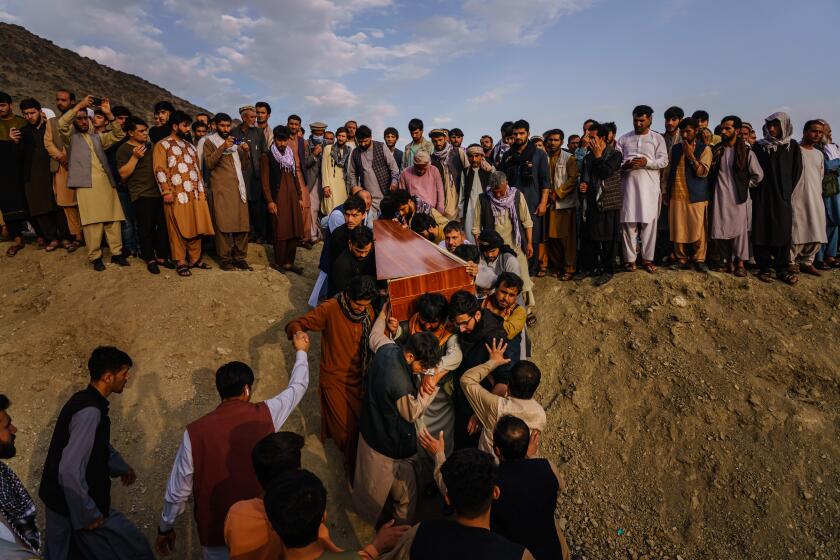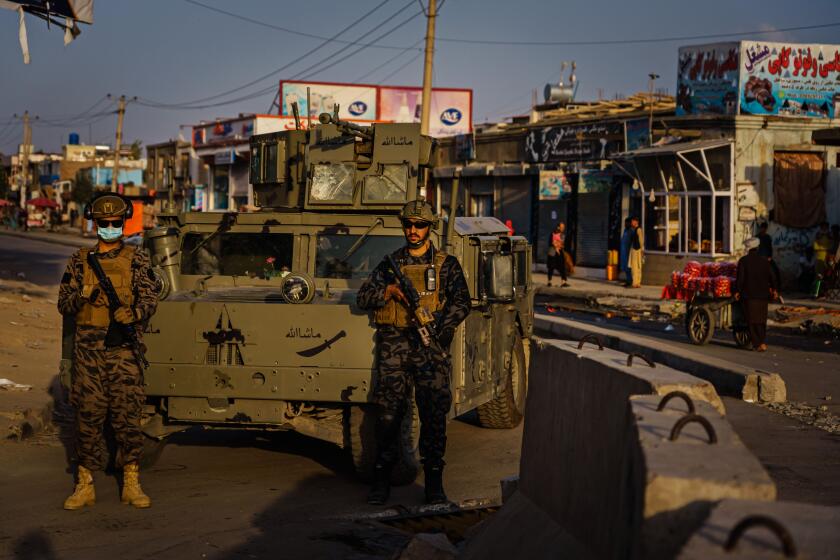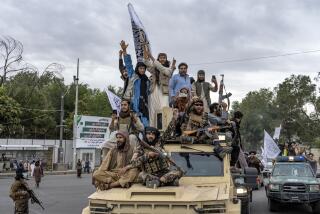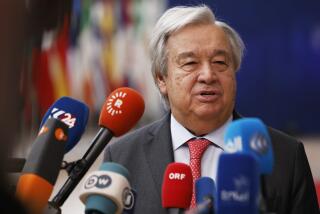European officials set out conditions for relations with Afghanistan’s Taliban leadership
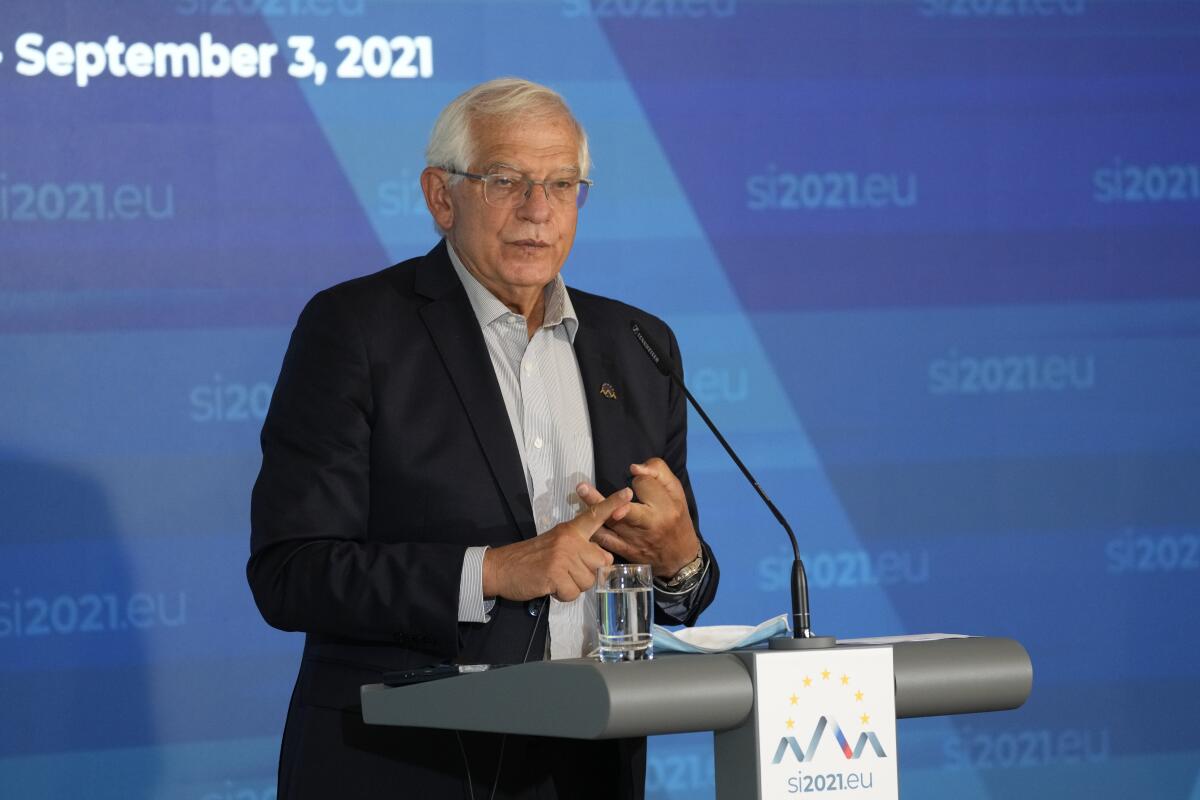
- Share via
BRDO CASTLE, Slovenia — European Union officials Friday set out a list of conditions that will determine the bloc’s level of engagement with the Taliban as the new rulers of Afghanistan, including respect for human rights and the rule of law.
Following the Afghan government’s collapse last month, the EU and its member countries have evacuated their diplomats from Afghanistan. But EU officials have said they are willing to cooperate with the Taliban now that it has returned to power.
The 27-nation EU is focusing on delivering humanitarian aid, guaranteeing the safe passage out of the country of Afghan allies and employees who were left behind during the airlifts from Kabul, and trying to prevent a mass exodus of refugees that could prompt another migration crisis in Europe.
After meetings with European foreign ministers in Slovenia, EU foreign policy chief Josep Borrell said that the bloc would use several benchmarks to gauge the Taliban’s goodwill.
These include a guarantee that Afghanistan won’t become a base for “the export of terrorism to other countries,” a commitment to free access for humanitarian aid deliveries, and adhering to standards in the areas of human rights, rule of law and press freedom.
“What is clear is that the future of Afghanistan remains a key issue for us,” Borrell said. “It affects us, it affects the region, the international stability, and it has a direct impact for European security.”
Reporting from Afghanistan under the Taliban is ‘just weird. Surreal, really.’
“At the same time, the ministers strongly insisted on the idea that we remain committed to supporting the Afghan population,” he said.
Borrell stressed that the EU also wants to see an inclusive transition government formed in Afghanistan and to see the Taliban honor its pledge to let foreigners and those who fear for their lives leave the country.
“Our engagement will depend on the fulfillment of these conditions,” Borrell said.
The EU has suspended development assistance to the Afghan government but has pledged about 1.2 billion euros ($1.4 billion) for the country for 2021-24.
The countries lying closest to Afghanistan have competing agendas in the new Taliban era.
To ensure the evacuation of EU nationals and Afghan staff under the protection of member states and to assess how the Taliban respects the bloc’s conditions, Borrell said ministers agreed to establish a “joint European Union presence” in Kabul if security conditions are met.
Foreign affairs ministers also acknowledged the need to coordinate with Afghanistan’s neighbors through an EU regional political platform of cooperation aimed at stabilizing the region.
“This political platform will consider, among other issues, the management of population flows from Afghanistan; the prevention of the spread of terrorism; the fight against organized crime, including drug-trafficking and human-being smuggling,” Borrell said.
Slovenian Foreign Minister Anze Logar, whose country currently holds the EU’s rotating presidency, said such cooperation will try “to stop any future migration flows” to the bloc.
More to Read
Sign up for Essential California
The most important California stories and recommendations in your inbox every morning.
You may occasionally receive promotional content from the Los Angeles Times.
